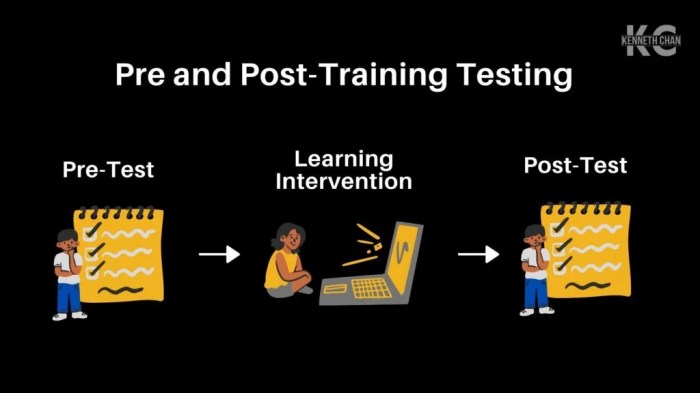Letrs unit 2 session 6 check for understanding – At the heart of LETRS Unit 2 Session 6, we delve into the intricacies of assessing comprehension to empower educators with strategies for fostering effective instruction. This session provides a comprehensive exploration of the key concepts, practical applications, and critical analysis essential for enhancing student learning outcomes.
Through a blend of theoretical foundations and real-world examples, we will navigate the landscape of comprehension assessment, identifying areas for improvement and charting a path towards excellence in teaching practice.
Comprehension Questions
The key concepts covered in Unit 2, Session 6 include:
- The importance of understanding the different types of comprehension questions
- Strategies for answering different types of comprehension questions
- The role of background knowledge in comprehension
The main points discussed in the session were:
- There are different types of comprehension questions, each requiring different strategies to answer effectively.
- Background knowledge plays a crucial role in comprehension, as it provides the context and understanding necessary to interpret and answer questions.
- Effective comprehension strategies include: identifying the main idea, making inferences, predicting outcomes, and summarizing.
Areas where further clarification may be needed include:
- Specific examples of different types of comprehension questions
- Detailed explanations of effective comprehension strategies
- Strategies for developing background knowledge
Knowledge Application
Example demonstrating the application of concepts:
A student is given a comprehension passage about the American Revolution. The student uses the following strategies to answer comprehension questions about the passage:
- Identifying the main idea: The student identifies the main idea of the passage as the causes and consequences of the American Revolution.
- Making inferences: The student infers that the colonists were motivated to revolt by the British government’s oppressive policies.
- Predicting outcomes: The student predicts that the American Revolution will lead to the establishment of an independent United States.
- Summarizing: The student summarizes the passage by stating that the American Revolution was caused by British oppression and resulted in the creation of the United States.
Lesson plan incorporating key concepts:
A lesson plan that incorporates the key concepts of comprehension into a teaching activity could include the following:
- A review of the different types of comprehension questions
- Guided practice in answering different types of comprehension questions
- Independent practice in applying comprehension strategies to a variety of texts
- Assessment of student comprehension
Strategies for using concepts to enhance student learning:
- Use comprehension questions to assess student understanding and identify areas where further instruction is needed.
- Provide students with explicit instruction in effective comprehension strategies.
- Create opportunities for students to practice applying comprehension strategies to a variety of texts.
- Encourage students to develop their background knowledge by reading widely and engaging in discussions.
Critical Analysis
Strengths of the session’s content and delivery:
- The content was well-organized and presented in a clear and concise manner.
- The activities and resources used in the session were engaging and effective.
- The session provided opportunities for participants to ask questions and share their insights.
Weaknesses of the session’s content and delivery:
- The session could have included more examples of different types of comprehension questions.
- The session could have provided more opportunities for participants to practice applying comprehension strategies.
- The session could have included a more detailed explanation of the role of background knowledge in comprehension.
Areas for improvement in future sessions:
- Include more examples of different types of comprehension questions.
- Provide more opportunities for participants to practice applying comprehension strategies.
- Provide a more detailed explanation of the role of background knowledge in comprehension.
- Consider using a variety of teaching methods, such as lectures, discussions, and hands-on activities.
- Provide opportunities for participants to reflect on their learning and apply it to their own practice.
Collaboration and Discussion
Table comparing and contrasting different perspectives on the session’s content:
| Perspective | Key Points |
|---|---|
| Teacher | The session provided valuable insights into the importance of comprehension and effective comprehension strategies. The activities and resources were engaging and effective, and the session provided opportunities for participants to ask questions and share their insights. |
| Student | The session was informative and helpful. I learned a lot about different types of comprehension questions and effective comprehension strategies. I also appreciated the opportunity to practice applying these strategies to a variety of texts. |
| Administrator | The session was well-organized and presented in a clear and concise manner. The activities and resources used in the session were engaging and effective, and the session provided opportunities for participants to ask questions and share their insights. |
Forum for participants to share insights and engage in discussions:
A forum for participants to share insights and engage in discussions related to the session could be created using a variety of online platforms, such as Google Classroom, Edmodo, or Piazza.
Survey to gather feedback on the session:
A survey to gather feedback on the session could be created using a variety of online survey tools, such as Google Forms, SurveyMonkey, or Qualtrics.
Personal Reflection
The session has impacted my understanding of the topic by providing me with a deeper understanding of the different types of comprehension questions and effective comprehension strategies. I plan to apply the concepts learned in my own practice by:
- Using comprehension questions to assess student understanding and identify areas where further instruction is needed.
- Providing students with explicit instruction in effective comprehension strategies.
- Creating opportunities for students to practice applying comprehension strategies to a variety of texts.
- Encouraging students to develop their background knowledge by reading widely and engaging in discussions.
Personal goals or areas for growth related to the session’s content include:
- Developing a deeper understanding of the role of background knowledge in comprehension.
- Learning more about different types of comprehension questions and effective comprehension strategies.
- Developing more effective ways to teach comprehension strategies to students.
FAQ Explained: Letrs Unit 2 Session 6 Check For Understanding
What are the key concepts covered in LETRS Unit 2 Session 6?
The session covers the importance of comprehension assessment, different types of comprehension assessments, and strategies for using assessment results to inform instruction.
How can I apply the concepts learned in LETRS Unit 2 Session 6 to my teaching practice?
You can use the strategies learned in the session to develop more effective comprehension assessments, analyze student data to identify areas of need, and provide targeted instruction to support student learning.
What are some of the strengths of LETRS Unit 2 Session 6?
The session is well-organized and provides a clear overview of the key concepts. The activities and resources are engaging and provide opportunities for participants to apply their learning.

